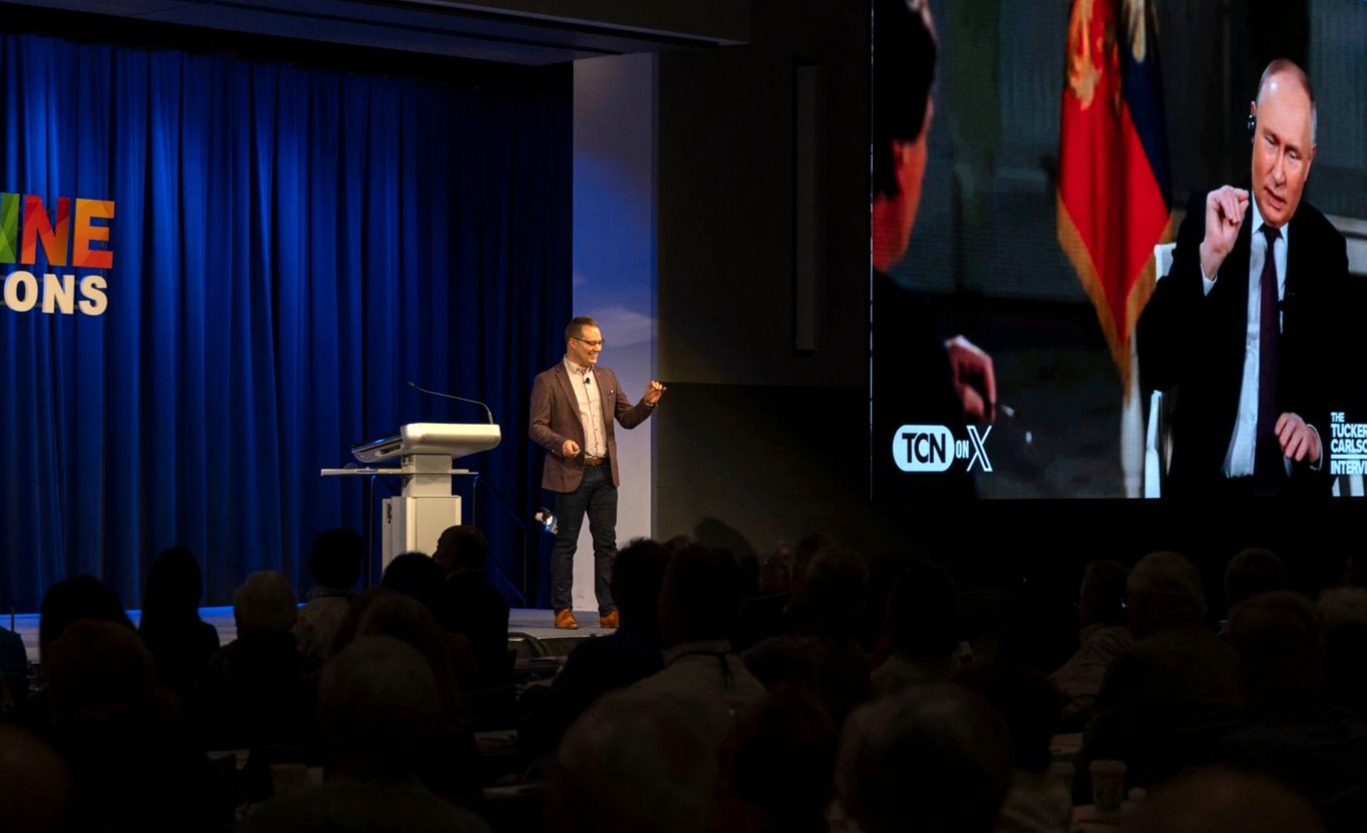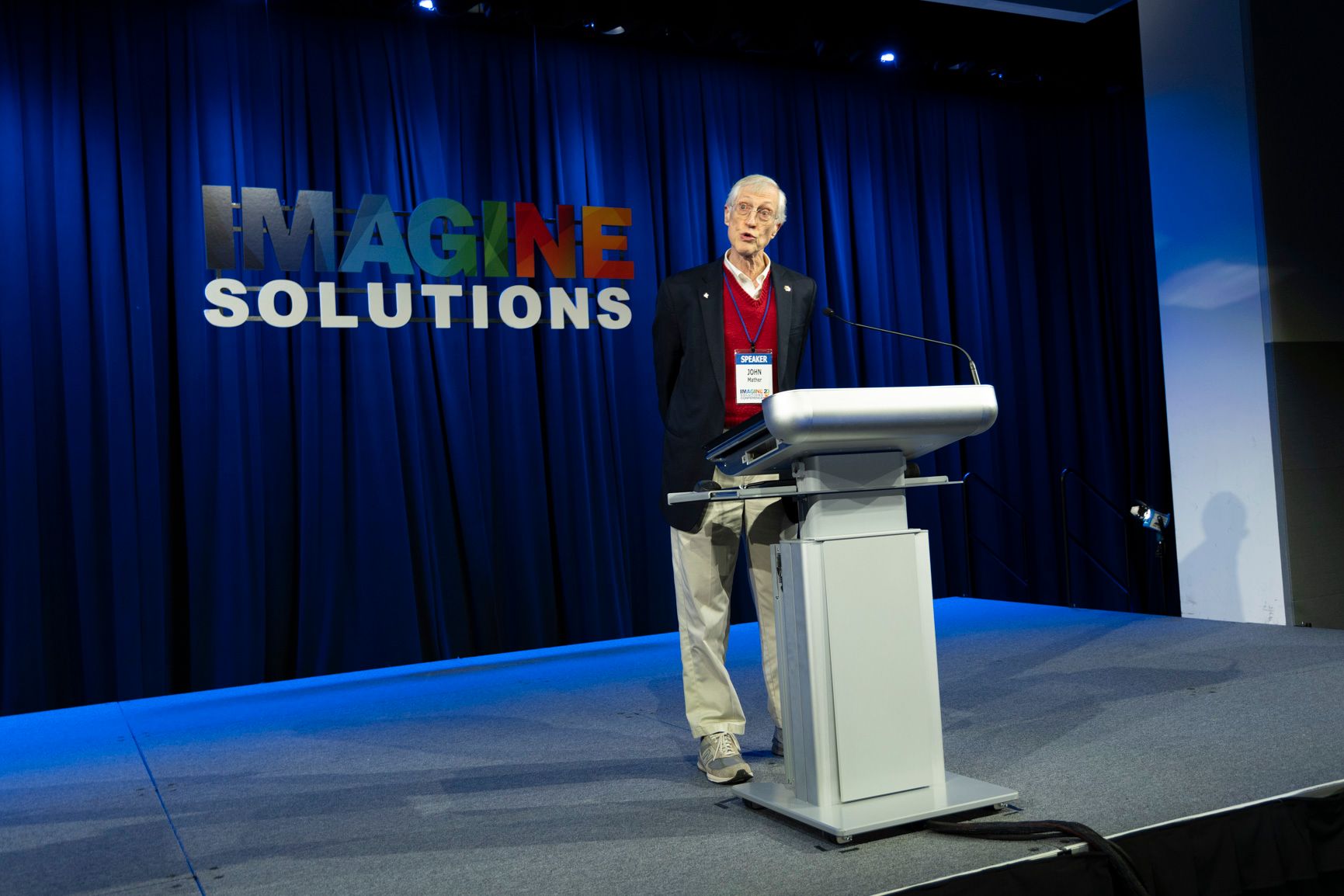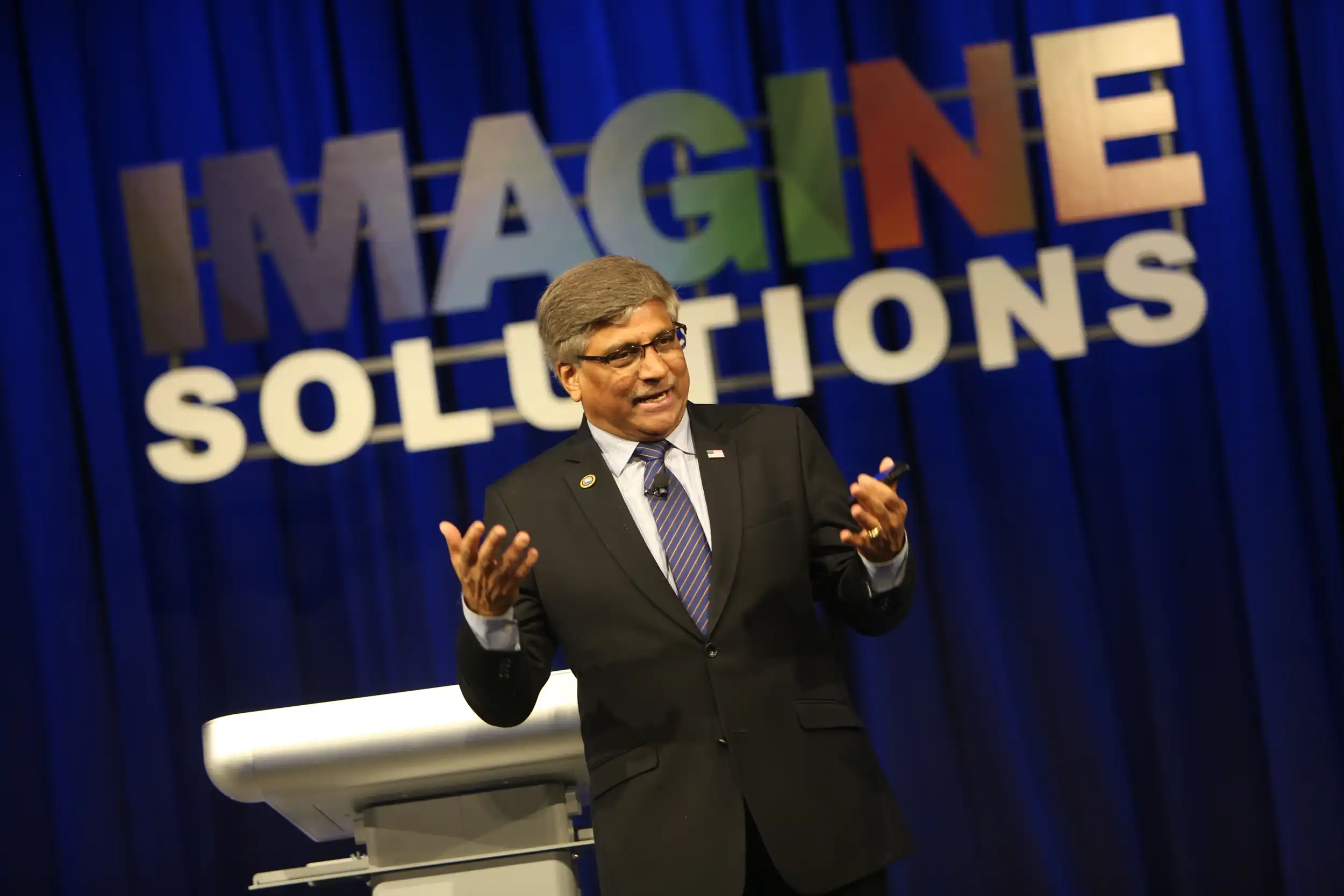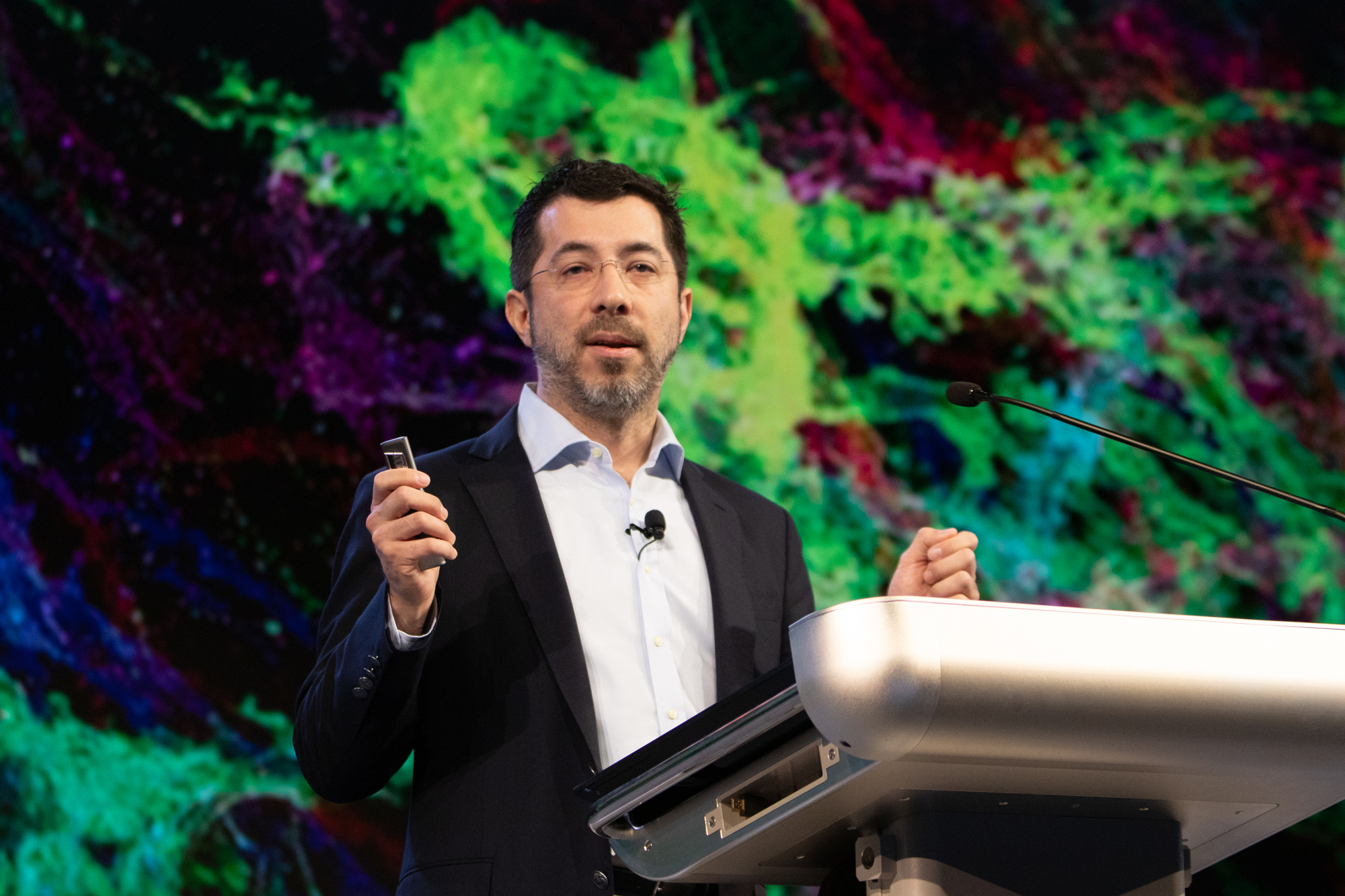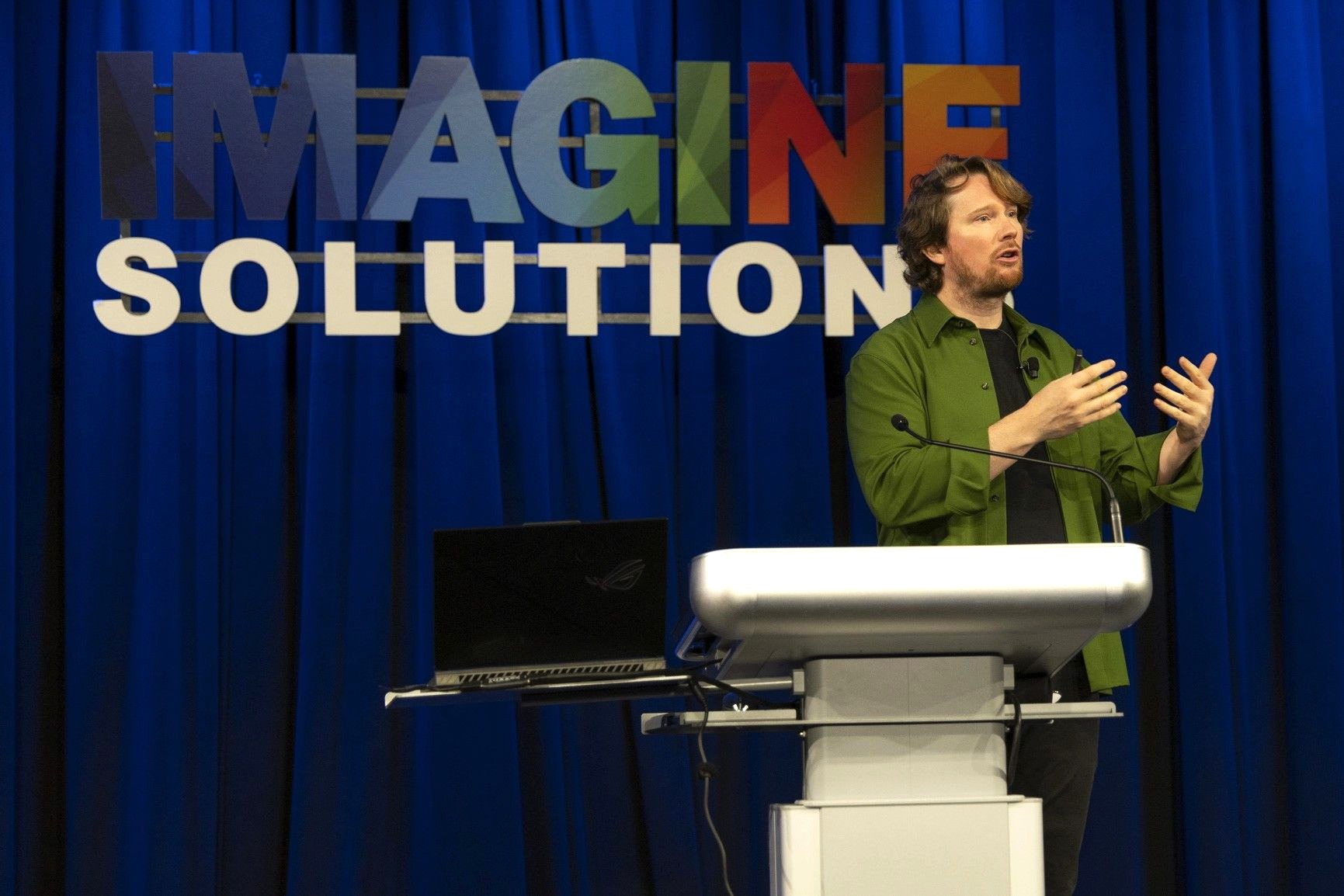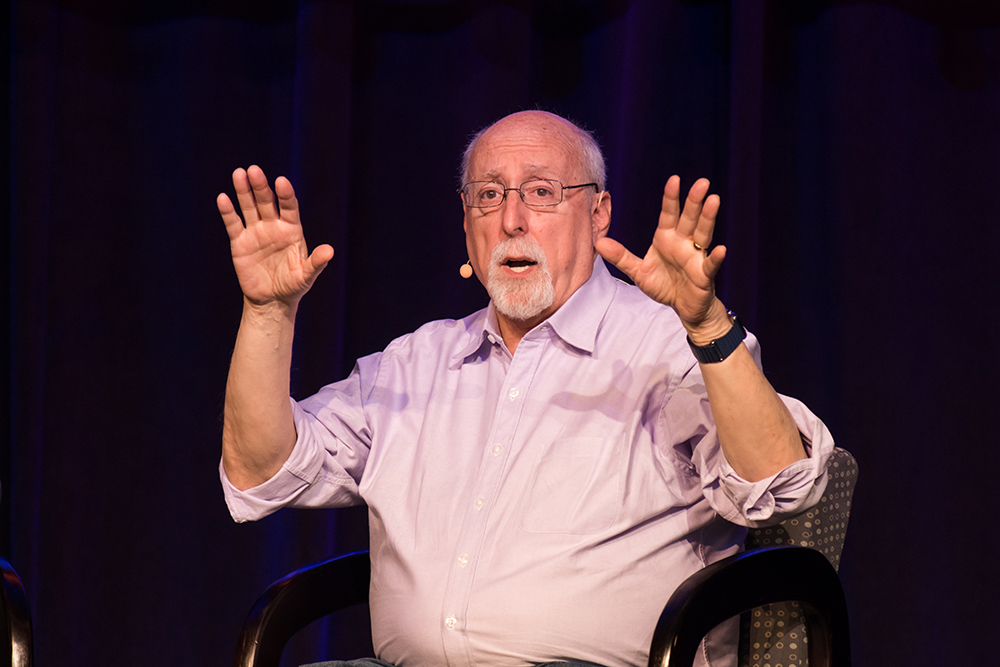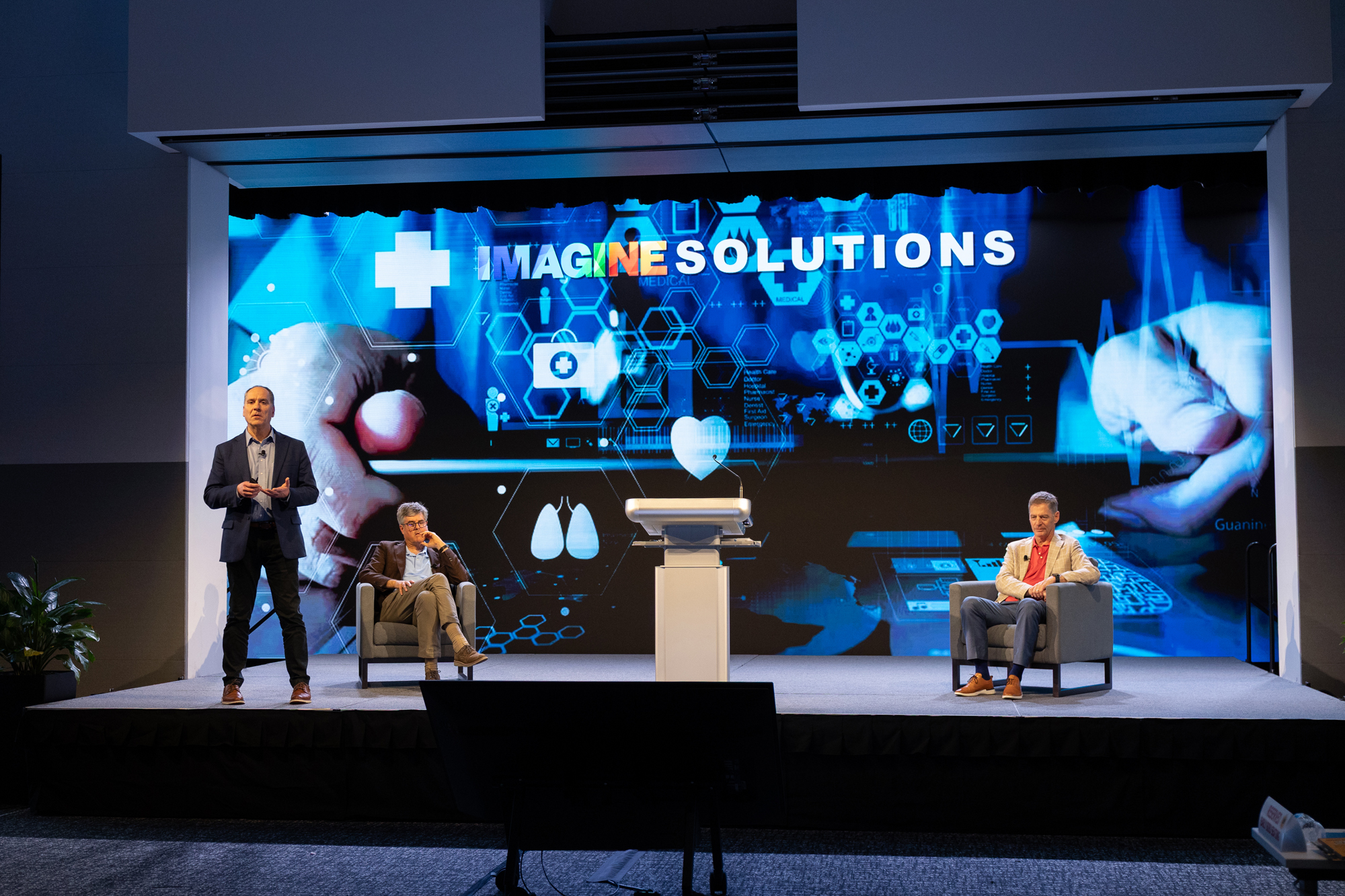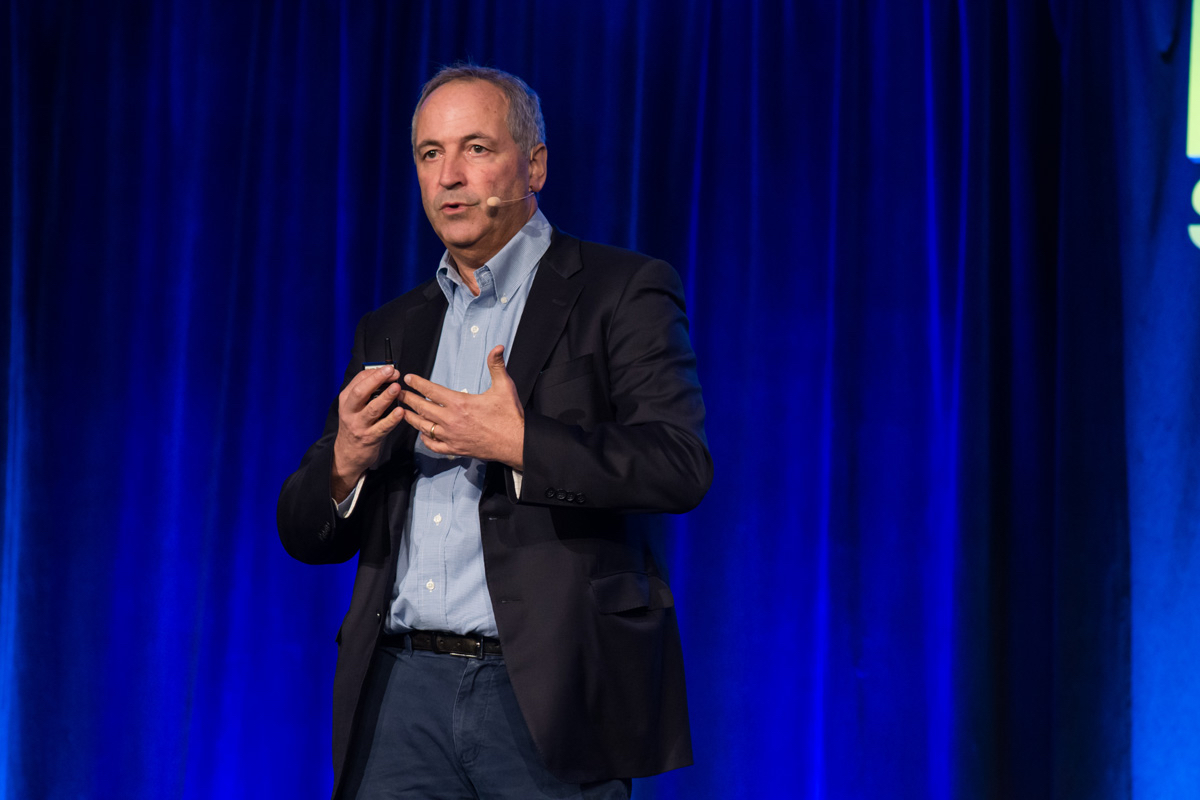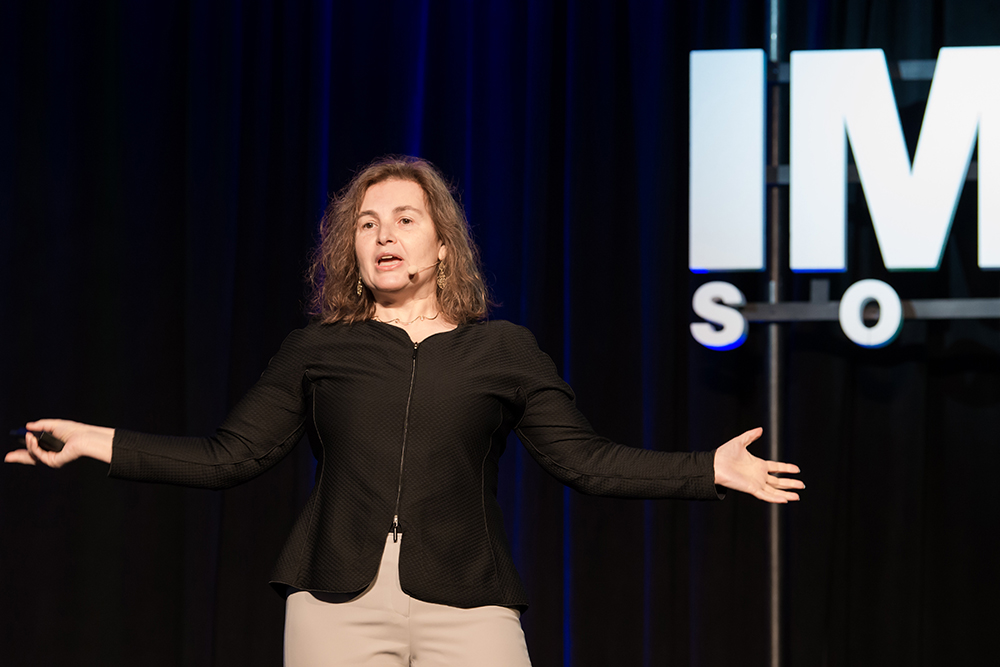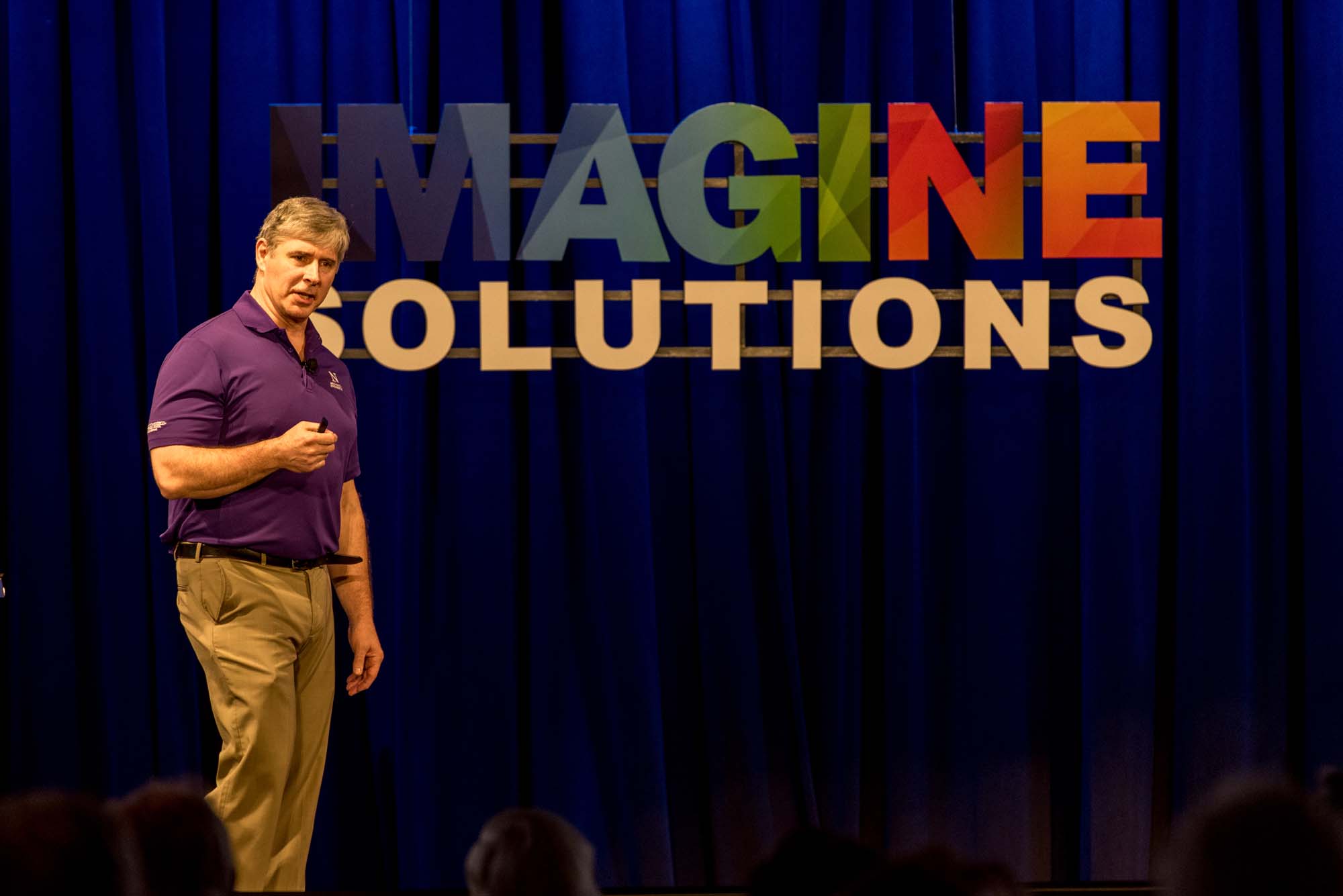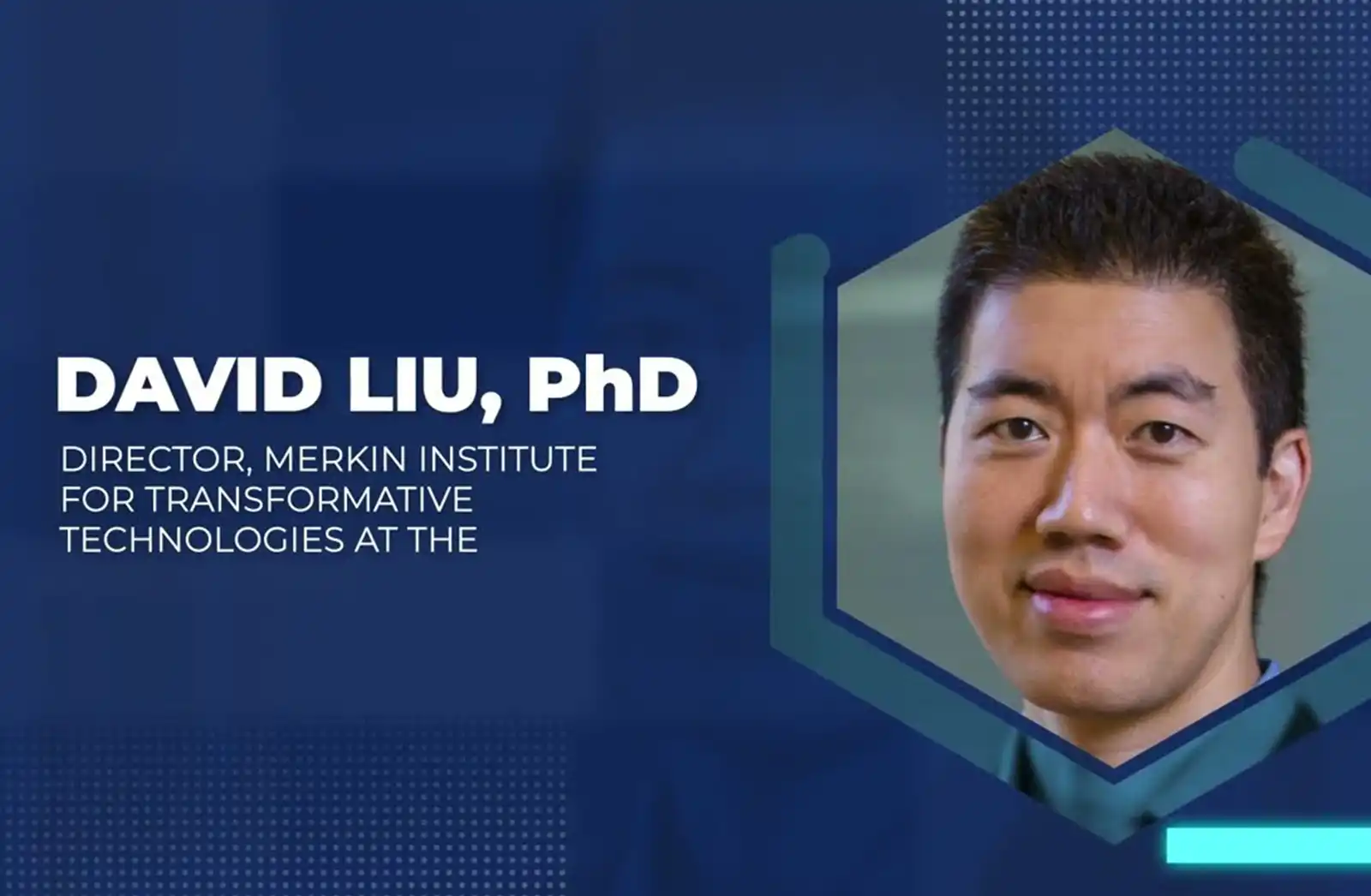Understanding AI’s Cutting-Edge Opportunities
00.00
[Music] [Music] well Alfred Whitehead understands AI the fast changing technology the opportunities the applications the issues of it Alp is a brilliant techno and here today to help us better understand the broad landscape of this fast-moving technology to explain in plain English something that is often hard hard to understand is Alfred Whitehead thank you good morning I'm Al Whitehead I help Life Sciences companies figure out how to use AI but that's not what I'm here to talk about today today I want to give you a bit of an introduction explain
01.00
about why AI is such a a big deal right now um and some of you might ask the question what what changed AI has been around for um you know a long time 1940s it started out with alen Turing what what changed why why all of a sudden this hype and I can give you a one-word answer Transformers a new technology that's really revolutionizing AI now just naming something though doesn't explain it so what is a trans former do well let's just all do it together I'm going to say Mary had a little and you all said lamb that's right that is exactly what a Transformer does it takes a sequence a pattern it uses its experience and it continues it now how did you know I was going to say lamb and not boy Mary had a little boy is a perfectly good sentence the answer is you didn't you
02.01
used your experience to guess a statistically likely outcome and that's what Transformers do you give them a starting sequence they use their knowledge of patterns and they give you a statistically likely outcome and this is why we have things like hallucination in AI where uh models give answers that we don't expect it's just picking a likely outcome from what it knows about patterns and so when you think about it this way it's not all that surprising that you have these issues so all the fancy technology really comes down to the game of what comes next here's the start what follows and every application of AI that you're going to be seeing uh on stage here today and you're seeing out in the world really comes from this simple fundamental principle another good question is why now uh what's Chang changed in the last
03.00
you know few years that has really Amplified the amount of investment and interest in AI well 2017 the invention of the transform over at uh Google and and the University of Toronto that really changed the game in terms of the technology available and we've had a massive scaling up I love this chart from The Economist this is a logarithmic scale and it shows how much computing power goes into a state-of-the-art AI model so in the last 10 years we're up by a factor of about a billion we've had a billionfold increase in the amount of computing power in these models and we now have thanks to the internet trillions of gigabytes of data that can be used to teach them what patterns look like and so those the convergence of those two factors the incredible amount of computing power the incredible amount of data have really allowed AI to take off uh and that's why we're seeing the AI Revolution today that we are
04.01
I want to talk a little bit about basic capabilities of AI and then I'll dive into a little bit about how it's being used across many different Industries and Fields of endeavor um most of you are probably familiar with the most basic capability which is that AI can write so this is me asking uh Google or sorry Microsoft's co-pilot to write a a paper on chatbots which it does um this is the simplest way to use AI this is the least interesting way to use AI in my opinion um but it's out there and this is something that is embedded into software that billions of people use uh Microsoft Word now has this feature anyone in the world can buy it and use it uh other word processors uh email programs calendaring programs they're all getting this stuff added and so this is going to be something that is on the desktop of every knowledge worker within the next year or two think about that here's a little more advanced example here I am having a conversation with an AI and this is the
05.01
better way to use AI is we work on creating the pattern together and what we're discussing is a data file that contains clinical trials I'm asking questions the AI is looking at my file it's writing computer code it's running computer codes there it just made an error um and we're discussing how to do this analysis uh and in about 8 minutes real time that video is sped up but in about 8 minutes I was able to go through every clinical trial on record with the US government and pull out all the ones relevant to women's health conditions this is something some folks at my company had to do by hand the oldfashioned way and it took them about a week this took eight minutes uh we compared the results they were comparable they were not identical uh there were some that were you know the humans picked the AI didn't there were some the AI picked the human didn't but all of them fell into sort of the gray area of a judgment call uh and so that's something that I think we need to learn as we work with AI guys is that they
06.00
think a lot more like we do than we're used to thinking of how computers operate they're not as exact but they interpret and the trick is to understand how they've interpreted and how to work with that interpretation as we saw with uh rafi's presentation AI can make fabulous art whether it's um beautiful images like this done by my colleague Owen or video I'm going to show the same system that uh Tom Graham has showed this is Sora from from open AI they released this about 2 weeks ago and what you're seeing in the text here is what is being input that's the start of the pattern and the AI is going to continue it so here's the cat waking up its sleeping owner this is unretouched AI footage pretty much understands how cats work um here's an image you've seen before this is the Drone footage of Big Sir uh again all AI generated it is just continuing the pattern but the pattern
07.01
that came in was just that little bit of text let's have a look at a bustling Tokyo City street this is entirely synthetic these are not real people this is not a real street and it's looking pretty good I want to show this sort of fun example um this is something I built just purely for fun uh and what this is is it shows how the pattern can start with an image so in this case you're going to see the camera roll it's going to stop that's the I capturing an image and then it's going to describe it in the style of a famous person here we stumble upon a heartwarming scene of camaraderie between species as a human engages in a moment of joviality with their Kine companion The Joy shared in their interaction is a marvelous display of the bond that can form across the Animal Kingdom so this was a fun experiment
08.00
right that's was able to see the photo understand what was happening um it was able to write in the style of David atenor and I was able to steal his voice which should be a little worrisome uh I used that without permission apologies to Sir David um and all I needed to create that was one chapter from an ebook he had recorded and that was enough to clone his voice to that level of fidelity for the cost of a couple dollars so um this is the sort of technology that is out there right now so let's maybe talk about how it's getting used politics this will be a fun one politics of course is the art of communication uh and AI is going to be incredibly helpful when it comes to developing messages authoring legislation understanding how to talk to voters all of these things I wanted to show an interesting example of how it can be used for better understanding um some of you may have watched this interview uh between Tucker Carlson and Vladimir
09.01
Putin Putin was speaking Russian and the folks at sync. Labs have used AI to translate him and pay attention to how how well this translation Works how did you conclude that it's not that America the United States was going to launch a surprise strike on Russia I didn't say that are we having a talk show or a serious conversation here's the quote thank you it's a formidable serious Oh serious okay all right because your basic education is in history as far as I understand yes so if you don't mind I will take only 30 seconds well any of you who watched the interview knows that what followed was 30 minutes not 30 seconds um but uh the other thing you should notice though is the AI has done a great job it hasn't just taken the Russian words and made them English it's also synced up his lips it's synchronized to the gestures it understands the Cadence of the speech it's cloned Vladimir Putin's voice into
10.00
his English-speaking um component and so this is a great way potentially to increase understanding uh to bridge gaps in politics can also be used for ill here's an example from the New Hampshire primary a number of Voters got this phone call it's important that you save your vote for the November election so that was President Biden telling them to not vote that is not what we want um but it is very convincing and these sort of voice cloning uh things are not limited to politics we saw a case recently uh where someone had gathered voice from a a young woman a teenager and then had used it uh as to create a ransom demand to her parents and the voice quality was sufficiently good that it fooled her mother into thinking she had been kidnapped and they were about to hand over hundreds of thousands of dollars when the daughter happened to call them and everything was fine she had never been kidnapped nothing had ever gone
11.00
wrong so these Technologies are already changing our world it's also driving to some extent geopolitics um AI requires a huge amount of computing power one thing that is driving conflict between China and the US is the fact that 100% of the world's top-end chip production those four and five nanometer chips that are the very best is made in Taiwan right now by a single company in a single location this is something that of of course um strategically we're working to unwind but today Taiwan is the most strategically important place in the world of technology because of that I want to talk about impacts on science something a little more upbeat uh certainly science has so much to gain AI has made huge progress in things like understanding how proteins fold um how to simulate the behavior of many different actors in a system generating hypothesis doing administr ation I'm going to show one of my
12.00
favorite examples this one comes from Google and if you've ever been a graduate student you'll relate this one is about a literature review so here we have someone who has this plot it's about how many validated variants of each gene have been published uh but it ends in 2020 and she wants to fill in the data to the right she wants figure out oh what other new things have been discovered since 2020 well if you're a graduate student get ready you get to spend a month or so reading all of those papers sorting through all of that literature to find out what matters she's going to use Google's Gemini system so what she does here is she writes the start of a pattern a prompt that tells the AI what to look for she tests it on a couple of papers she knows and then she goes for lunch and it looks at hundreds of thousands of papers while she's away uh and then it writes the code to extend this plot and so it is sorted through all of that scientific literature it has found all of the relevant papers it has organized them and handled all of the duplicates and overlaps and it's used that to connect
13.02
to the existing data set this is literally a month of work uh by hand and Google according to them this this demonstration took about two hours to run using PubMed uh and that's three years of PubMed data so probably close to about two million papers roughly that it looked at so that's pretty incredible um there is of course a dark side to all of this uh I want to talk about this paper which was the use of AI um that was created for drug Discovery for Otten Gam gains so this company had an AI that was trained to maximize the bioactivity of molecules and penalize toxicity well what happens if you flip that arrow and you say I want molecules that are very bioactive and very toxic uh well they ran it for 6 hours and they ended up finding 40,000 molecules designed by this uh including the famous VX nerve gas agent uh as well as if you look at this distribution everything to the right of that red line in this histogram
14.00
that's a molecule that the AI thought would be more lethal than VX that was designed so these scientists of course did not publish this list of of chemicals they handed it over to uh proper security and instead they wrote about the danger of these models um because they're agnostic to the intention that goes into how they're used personally one of the areas I think is going to be a huge in um area of growth in the next few years is going to be in genomes the AIS of today they understand text they understand images they understand sounds uh another pattern they can learn uh are genetics and how that uh turns into biology and so once we get these going I think this plus the synthetic biology Revolution we've been seeing is really going to make genetic engineering finally take off um so exciting but also a little worrisome want to talk a little bit about impacts on education you can imagine given giv every student in the world these writing
15.01
tools these mathematical tools uh has created some interesting side effects uh I often think that AI has done to the written assignment what calculators did to arithmetic um you now essentially have a calculator for Words uh so what does that do to how you educate and how you plan you need to of course teach students the fundamental skills but you also have to be realistic when they graduate they are going to have these Technologies wherever they go um AI technology today is the worst it is ever going to be for the rest of our lives it's only going to improve from here so understanding how to use it is important and I think there are some very encouraging use cases from education this is an example from Khan Academy of an AI that helps teach you math and here we are it says first of all there at the top it's going to show everything to the teacher uh we're gonna have the student ask for the answer and it's going to refuse and then the student is going to make a guess and here they're going to screw it up they're going to misunderstand the distributive property
16.01
of multiplication which is the common error and the AI not only understands that the student got it wrong but it understands why the student got it wrong and is able to provide useful actionable feedback to that student it's going to help you learn so this is for me one of my I think one of the most hopeful areas of AI a personalized tutor that's always available for every student that's going to customize to their level uh and is never going to get bored or frustrated uh or be unavailable I want to talk about an area near and dear to my heart ai's impact on business um AI is fantastic already today at what I call ritualized communication anytime you have businesses to consumer or business to business when you're having sort of the same conversation over and over and over again whether that's insurance claims or advertising or um you know invoicing all these things are ripe for AI automation want to talk about an example that came out about 10 days ago from a
17.01
company called Clara they're an online payments company and they published some data on an experiment they had done they took uh for one month all of their customer service traffic and sent it first to an AI and then escalating to humans if needed and they talked about the results uh the AI handled 2.3 million contacts in that month uh it did so in 35 languages it handled those contacts 82% faster than a human agent would the average length of the contact went from 11 minutes to 2 minutes so think about that as a customer that's a pretty big benefit and there were 25% fewer Rec contacts 25% fewer instances of customers coming back because their issue hadn't been solved they asked the customers hey what's your satisfaction like as they had been doing for years with their human agents no change so Clara's uh conclusion from this is that they can reduce their Workforce by 700
18.00
full-time agents uh and generate $40 million of net profit annually to add on to their bottom line we talk a lot about AI taking jobs this is one of the first concrete examples we've been I've been able to find and I think when we consider what jobs are at risk AI today is good at solving tasks it's good at doing specific things and if your job is just doing the same task over and over and over again that's aob job that's at risk and that's something we need to consider what do we do about this as a society couldn't resist showing one little example from my own work this is a project planning tool we've created uh that helps our project managers scope work they write up their scope and we have different AI agents have a conversation with each other about what they've written and each of these agents is controlled by a different um field of expertise so we'll have software developers we'll have regulatory review people Etc and they'll have a convers a with each other trying to answer each
19.01
other's questions about the scope to make sure the project has been adequately planned anything it can't figure out it gives back to the human so this sort of planning ability uh basically makes every project manager at our company as good as our best uh and that's a trend we're seeing with AI rolled out into business it often helps every employee function at a much higher level but it helps those who are poor performers the most this is something that I think is going to be called eventually the cognitive assembly line we're creating effectively the industrialization of knowledge work where all of a sudden the same sort of Robotics you see in manufacturing are going to start showing up in in how we create work in Commerce so hopefully by now I've convinced you that Transformers are a revolutionary technology this simple game of playing what comes next in the pattern has so many uses and so many unexpected outcomes and because of that uh I think think that is why today AI is
20.00
everywhere and why it is going to remain everywhere with that I'll say thank [Applause] you ask you a question Alfred if I might and that is this you talked about the use of AI in the educational setting in the classroom and and uh and Academia should teachers encourage students to use AI in their education and will AI become the great and and proficiency at using AI become the great differentiator between success or failure in the classroom and then success or failure in the workplace I think it's a good idea for teachers to to encourage the use of AI where it's appropriate um I think the trend that that I've been seeing in higher education at least has been to mix AI with sort of more live face-to-face activities so maybe you use AI to help with your research and you submit
21.01
different Milestones along the way so your teacher can guide you uh and help you write that paper because that's how it's going to work when you graduate but that final exam that might be an oral exam where it's you and a teaching assistant or you and your professor up at a chalkboard working something out to prove that you actually have the fundamental skills as well I think students need both um and so we have to prepare them for the world they're going to go into uh and that means having both the fundamental skills and the practical skills to work with these things in the real world Alfred waye thank you very much appreciate [Applause] [Music] it

